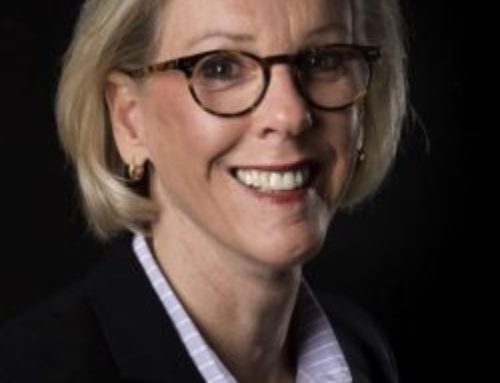By JOEY JOHNSTON
Tribune Staff Writer
(c) Tampa Bay Times. Originally published May 15, 2011.
CLEARWATER — Once, Keith McCants was the nation’s most feared defensive player, a relentless package of sideline-to-sideline intensity for the University of Alabama. Now, he’s in constant physical agony because of football injuries.
He walks with a cane. He said he has been diagnosed with clinical depression and early stages of dementia. Sometimes, he can’t recognize family members. More than once he considered suicide.
He’s 43 years old.
Once, he was a first-round draft pick of the Tampa Bay Buccaneers, who presented him with a $7.4-million contract and the largest signing bonus ever given to a rookie defender. He lived fast and hard, with a mansion on the water, cars, boats, jewelry, flashy clothing, nights on the town, lavish vacations.
Now it’s all gone.
He’s broke.
Once, he was the good-guy favorite son of Mobile, Ala., where residents bragged about his accomplishments. Now, they are accustomed to his litany of legal entanglements — since 2002 he has had 11 arrests on charges of possessing drugs or drug paraphernalia and three convictions — but remain baffled about how it all went so wrong.
McCants said he had 29 surgeries, many on his troubled knees, and six concussions. Football injuries caused an addiction to painkillers, which he said led to cocaine use. His problems, though, began much earlier.
“I wish I had never had any money,” he said during an interview at the Pinellas County jail, where he has been held since April 23 on a fugitive warrant from Mobile. “I would’ve been great without money.
“It’s a sad story, but it’s a true story. Money destroyed everything around me and everything I care for, my family, my so-called friends. I just want enough to live on. I never want to be rich again.”
He wants his mistakes to be an eye-opening example. He wants to stand before high school and college athletes and tell his story. If he can remain clean, if he can stay away from the law, that’s how he says he will spend the rest of his days.
McCants, who has a wife in Mobile, moved back to the Tampa Bay area within the past year. He’s closer to his children, who live with his ex-wife. He had been entered in a drug-rehabilitation program at St. Petersburg’s Solid Rock Ministries.
“I’m trying, really I am,” he said.
In December, McCants was arrested after St. Petersburg police said he was found leaving an exotic dance club with a crack cocaine pipe on the console of his vehicle. His female passenger had cocaine in her purse, police said.
In February, as McCants removed identification from his pocket during a police stop, the officer said she noticed a plastic wrapper of cocaine. When she attempted to handcuff McCants, he pulled away and fled.
Last week, McCants pleaded guilty in both cases. The judge withheld adjudication, sentencing him to the 16 days he had served. He remains jailed on the warrant from Mobile, where authorities said he didn’t appear in court last year on a controlled substance charge.
“I don’t know much about the demons that Keith is fighting,” said former Bucs teammate Ian Beckles, an offensive lineman who also was drafted in 1990. “It’s scary to see all of this. It’s easy for people to judge him and say he has done all this stupid stuff, but he has a disease. I just know that deep down, he’s not a bad guy.
“Maybe a very naive guy, but not a bad guy.”
Shortly after signing with the Bucs in 1990, McCants visited Jimmy Wigfield, a Mobile Press-Register sportswriter who had covered his career. McCants offered to buy him a Jeep. Wigfield said he couldn’t accept such a gift because it wasn’t ethical.
“I’m not sure he understood,” said Wigfield, now the paper’s assistant sports editor. “He meant well. I think for every one of me, there were 10 other people around him who took him up on such offers. That might explain where all that money went.”
Mobile resident Danny Sheridan, a nationally known sports analyst and handicapper, met McCants when the athlete was 14. Sheridan liked the kid, who lived in the city’s Orange Grove neighborhood of subsidized housing, and grew close to him as his football career evolved.
But when the NFL draft approached, when McCants bypassed his senior season for riches that could free his family from poverty, there were ominous signs.
“I told him he had to take his signing bonus, put it away and invest it, not pay any taxes on it, and just live very comfortably off his salary” of $300,000, Sheridan said. “That way, if he got hurt and the money dried up, he’d have something to fall back on.
“He wouldn’t hear of that. I said, ‘Keith, if you don’t listen to me, you’re going to have all this new wealth, you’re going to be surrounded by an entourage of people who like you just because you have money and, unless you’re the next Lawrence Taylor, in a few years, you’re going to be broke.’ Well, guess what happened?”
Bucs coach Ray Perkins, who recruited McCants to Alabama from Mobile’s Murphy High School, sat the player down when he received his $2.5 million signing bonus. Perkins said he knew of financial advisers in Alabama who would manage McCants’ money, free. Instead, McCants hired Texas-based lawyer Lance Luchnick, who later pleaded guilty to violating Alabama’s registration law for sports agents.
McCants was taken fourth overall by the Bucs, despite rampant concern about a knee injury. The San Diego Chargers, up next, picked another linebacker, University of Southern California’s Junior Seau, who became a 12-time Pro Bowler and likely Hall of Famer.
Two days after the draft, McCants underwent knee surgery.
“I remember seeing him move around that first year and I said to myself, ‘Something isn’t right with him. He’s hurt,’ ” Beckles said.
On the field, things rarely clicked for McCants, who was shifted from linebacker to defensive end. Perkins said he never saw the game-altering speed McCants displayed with the Crimson Tide. Off the field, though, his lifestyle was pure opulence.
“You could say I hung around the wrong people, but I think it was more that the wrong people came around me,” McCants said. “I was green. I gave people the benefit of the doubt. I was trying to help them.”
McCants never saw another large contract. The Bucs cut him in 1993. McCants lasted six seasons in the NFL. He draws a monthly $1,100 disability check from the NFL, his only regular income. Since 2004, he has unsuccessfully petitioned the league for an increase based on his physical condition. His pension kicks in at age 55.
“They call me a bust,” he said. “I played six seasons on one leg. I think that’s remarkable. I was always hurt. I was so shot up all the time. Without the dope, I couldn’t play. My body was wrecked, so I didn’t want that needle anymore. I was ready to leave the game.”
With no post-NFL career options, his financial troubles mounted. Court records show he bounced 34 checks over a few days in 1999. The following year, the home he built for his mother was seized by the state of Alabama because of unpaid taxes.
In 2004, he went to a Mobile car dealership, took a Lincoln Navigator for a test drive and never returned it. He was indicted by a grand jury and later pleaded guilty to unauthorized use of a motor vehicle.
There was a time when he roamed the streets, not knowing his name, sleeping in cars, eating out of garbage cans, showering in gas stations, wondering where he belonged.
“It was some crazy stuff that people here had never seen from him when he was growing up,” said Mobile County Sheriff Sam Cochran, formerly the city’s police chief. “It was a huge surprise from him. It’s really no longer a surprise. I don’t want to say people are numb to it, but it kind of blends in together.”
Three years ago, Paul Sousa, who was McCants’ principal at Murphy High School, gathered a dozen Mobile community leaders. Sousa was particularly fond of McCants, who never was sent to the school office on a disciplinary problem.
“We wanted to get him some work, but he’s really not able to do much work because of his physical state,” said Sousa, whose daughter graduated from Murphy High with McCants. “He couldn’t even get up and down out of a chair. And he couldn’t get another type of job because people knew about the drugs. Just when things seem to be going well, he falls back, usually because of the drugs. It’s a hard, hard road.”
McCants said it’s a road he never intended to pursue.
“How does this happen? I’ll tell you how it happens,” McCants said. “You want to kill the pain. You’re out of the NFL, they throw you out the door and those expensive prescriptions are gone. They take away your health insurance. The next best thing is street drugs because you’re desperate for the pain to go away.
“I didn’t indulge in drugs to get high. I wanted to moderate my pain. It didn’t go away totally, but it felt better. I could get out of bed, go to the store. One thing leads to another. You end up going to jail. Your picture is on TV. You get ridiculed, ripped apart. You just wanted your pain to stop. That’s how it happens.”
Kevin Hayslett, McCants’ attorney, said the cycle could change if his client commits to a rehabilitation program for up to one year.
“If he solves his life problems, he solves his legal problems,” Hayslett said. “It’s people and places. Unfortunately, Keith has been hanging out with some people who were horribly negative influences, and crack has been involved. Until he gets different people and places, history is going to repeat itself.”
McCants said he has been clean and doesn’t believe he has a drug-addiction problem.
“I have a sex addiction,” he said. “I didn’t really want that to get out, but that’s it. What people do for drugs, I do for sex. Drugs just happen to be in it. I’ve been messing with women who did drugs.
“Sometimes, I took the rap for them and ended up in jail. I’m not saying what I did was right, but that’s what happened. For all this to go away, I know I’ve got to change everything about me.”
So much has changed.
McCants said he thinks his condition will lead to Alzheimer’s. He wants to see his mother, who was recently hospitalized. He says he’s fighting against time — time he wants with his children.
He hasn’t been around them regularly in years. His son, nearing high school graduation, wants to be a firefighter. His daughter is a professional model. Another daughter is an aspiring tennis player.
Once, McCants was young and vibrant.
He was reminded of an epic 1989 game at Auburn, when he had 18 tackles, an interception and caused a fumble. He also prevented a touchdown with a stunning field-length chase-and-catch of Tigers receiver Shane Wasden, who had a 30-yard head start.
McCants hung his head.
“I can’t remember that far back,” he said.
He paused a moment.
“I ain’t mad at nobody,” McCants said. “I don’t want anybody to feel sorry for me. Maybe it’s good that I can’t remember everything. It keeps me from being depressed.
“I can make money again. What I can’t get again is my body, my mind.”





